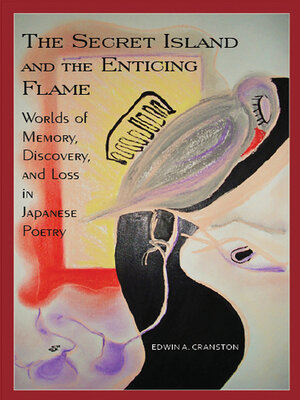The Secret Island and the Enticing Flame
ebook ∣ Worlds of Memory, Discovery, and Loss in Japanese Poetry
By Edwin A. Cranston

Sign up to save your library
With an OverDrive account, you can save your favorite libraries for at-a-glance information about availability. Find out more about OverDrive accounts.
Find this title in Libby, the library reading app by OverDrive.



Search for a digital library with this title
Title found at these libraries:
| Library Name | Distance |
|---|---|
| Loading... |
The three "essays" in this book draw on the translator's work on love poetry—classical waka and the tanka of Yosano Akiko (1878–1942)—but also introduce the prose poems and free verse of a contemporary surrealist poet, Mizuno Ruriko, whose themes are childhood and the loss of innocence. "The Secret Island and the Enticing Flame" shows the translator of poetry experimenting with three different ways to present the results of his craft. "In the Dark of the Year" is an essay in sequencing. Cranston arranges translations of fifty love poems in the tanka form, ranging from the ancient chronicle Kojiki to the contemporary poet Tawara Machi, in an examination of desire, melancholy, and despair. The arrangement, inspired by the technique of association and progression, suggests an ongoing love story and limns the essence of the classical love tradition. "Young Akiko: The Literary Debut of Yosano Akiko (1878–1942)" adopts a biographical approach. Richly documented with the astonishing tanka of the young poet who burst on the literary scene in 1900, this essay updates the author's article originally published in 1977 in Literature East and West. Finally, the longest essay, "The Dark at the Bottom of the Dish: Fishing for Myth in the Poetry of Mizuno Ruriko," shows Cranston "working outside his usual box," on the poems of a contemporary surrealist whose deepest themes are childhood and loss of innocence. Mizuno, hitherto not well known outside Japan, is a master of the prose poem and free verse. Cranston's essay shows the translator searching for the mysterious power that draws him to a poetry quite different from any on which he has previously worked.







